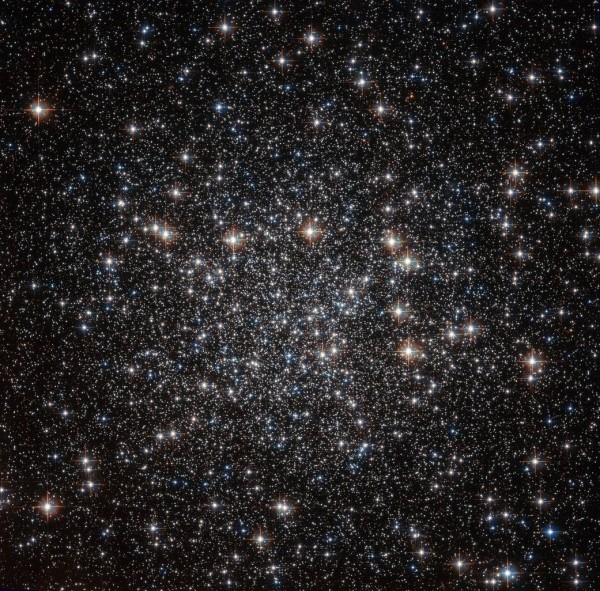By Ana Verayo, | September 26, 2016

NGC 4833 is one of the over 150 globular clusters known to reside within the Milky Way. These objects are thought to contain some of the oldest stars in our galaxy.
A new remarkable discovery has revealed that the universe is still growing and expanding in a uniform manner, which means that space is not growing into a single direction or even spinning around.
In this new study, astronomers from the University College London and Imperial College London made this discovery by examining cosmic microwaves that are considered to be remnants of the Big Bang event. Their new findings that the universe is still developing in all directions.
Like Us on Facebook
According to the lead author of the study, Daniela Saadeh of University College London's Department of Physics and Astronomy, this is the best evidence presenting how the universe is the same in all directions.
Saadeh explains that our current knowledge of the universe indicates that it does not prefer any direction to expand. However, Albert Einstein's theory of relativity means that space could be imbalanced. It is possible that universes can stretch and spin, and it is fair to assume that ours is growing in all directions.
The team obtained CMB measurements from 2009 from the European Space Agency's Planck space observatory. For the first time, the spacecraft released data about CMB polarization from the entire sky.
Researchers compared models of the universe in scenarios where the cosmos might stretch or spin via CMB and its polarization. The new findings were then analyzed with a real map of the universe with Planck data.
Saaded explains that the results can determine if space possesses different properties by calculating different patterns seen in the CMB. This includes hot and cold spots from stretching along a specific axis or within spiral distortions.
Researchers suggest that this new Planck data can allow them to calculate the universe's expansion, but the odds are one in 121, 000 that the cosmos is likely to choose one direction over another.
This new study has been published in the journal Physical Review Letters.
-
Use of Coronavirus Pandemic Drones Raises Privacy Concerns: Drones Spread Fear, Local Officials Say

-
Coronavirus Hampers The Delivery Of Lockheed Martin F-35 Stealth Fighters For 2020

-
Instagram Speeds Up Plans to Add Account Memorialization Feature Due to COVID-19 Deaths

-
NASA: Perseverance Plans to Bring 'Mars Rock' to Earth in 2031

-
600 Dead And 3,000 In The Hospital as Iranians Believed Drinking High-Concentrations of Alcohol Can Cure The Coronavirus

-
600 Dead And 3,000 In The Hospital as Iranians Believed Drinking High-Concentrations of Alcohol Can Cure The Coronavirus

-
COVID-19: Doctors, Nurses Use Virtual Reality to Learn New Skills in Treating Coronavirus Patients







